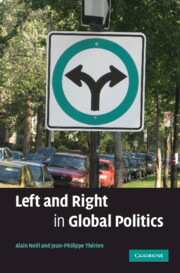Book contents
- Frontmatter
- Contents
- List of tables
- List of figures
- Acknowledgements
- Introduction
- 1 A clash over equality
- 2 A worldwide value divide
- 3 Two tales of globalization
- 4 The rise of the modern state system (1776–1945)
- 5 The age of universality (1945–1980)
- 6 The triumph of market democracy (1980–2007)
- 7 Twenty-first-century rapprochement
- 8 The core currency of political exchange
- Conclusion
- Index
- References
7 - Twenty-first-century rapprochement
Published online by Cambridge University Press: 05 September 2012
- Frontmatter
- Contents
- List of tables
- List of figures
- Acknowledgements
- Introduction
- 1 A clash over equality
- 2 A worldwide value divide
- 3 Two tales of globalization
- 4 The rise of the modern state system (1776–1945)
- 5 The age of universality (1945–1980)
- 6 The triumph of market democracy (1980–2007)
- 7 Twenty-first-century rapprochement
- 8 The core currency of political exchange
- Conclusion
- Index
- References
Summary
On May 1, 1997, Tony Blair and his New Labour Party won the British general election with 43.2 percent of the vote, against 30.7 percent for the Conservatives and 16.8 percent for the Liberal Democrats. Coming from a distance, the Labour Party won more seats than ever in its history. It progressed in every region and in most social groups, among the less fortunate and the young in particular. After eighteen years in opposition, the British left was finally able to form a strong and legitimate majority government. This was, however, a new left. A New Labour government, Blair had promised, would define a new course, away “from the solutions of the old left and those of the Conservative right,” and focused on “what works.”
Tony Blair was not alone. A few years earlier, in 1992, Democrat Bill Clinton was elected president of the United States with a commitment to “reinvent government” and restore the responsibility of citizens and a sense of community. “The change I seek and the change that we must all seek,” Clinton had explained in October 1991, “isn't liberal or conservative. It's different and it's both.” In October 1993, Canadians replaced the Conservatives, in power since 1984, with the centrist Liberal Party, led by Jean Chrétien. In continental Europe, social-democrats were also coming to power, in one country after the other.
- Type
- Chapter
- Information
- Left and Right in Global Politics , pp. 166 - 197Publisher: Cambridge University PressPrint publication year: 2008



